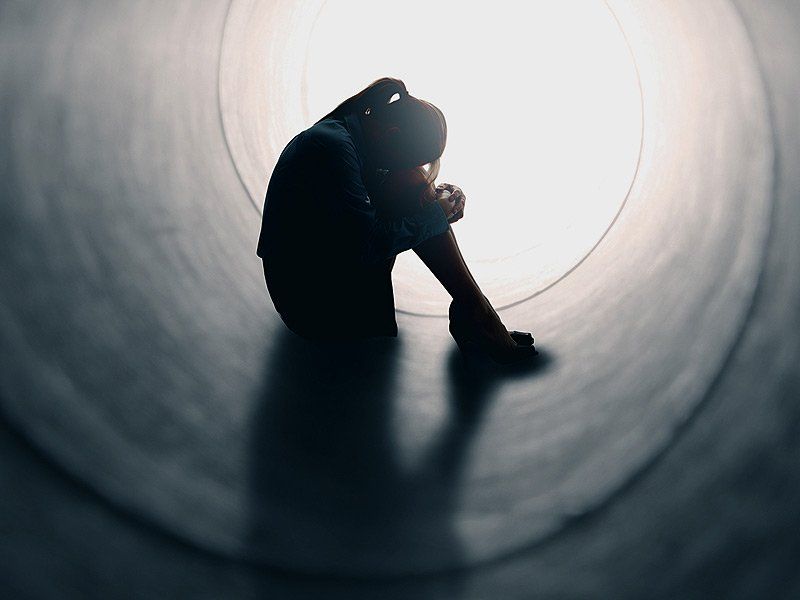Ways By Which You Can Teat Depression

Be careful in interpreting these findings, as study in these areas is continuing.
Medicine and cognitive behavioral treatment (CBT) are equally powerful in curing depression. Medicine can help with acute depression even as far as CBT.
There's a really powerful placebo impact in depression therapy. The normal man in a clinical trial will not only about also on placebo depending on drugs --a 40 versus 48 percent decrease in symptoms, respectively, according to a important review.
Persistent and much more acute depression reacts to a combination of drugs and treatment. Medicine plus CBT is significantly more powerful than meds , and drugs adds added advantage for individuals receiving CBT. For moderate, non-chronic melancholy, one remedy typically works in addition to the mix --also avoids the further time, effort, cost, and side effects.
Approximately 1 in 8 adults in america are taking drugs which are prescribed for depression. Two-thirds of those individuals are carrying a selective dopamine reuptake inhibitor (SSRI) such as Prozac or Zoloft.
CBT isn't the only sort of talk therapy which works well in curing depression. Psychodynamic treatment --that is based mostly on a Freudian comprehension of the brain --has gotten a bad rap from the age of evidence-based therapy. But, there is growing evidence that short-term psychodynamic treatment is useful , as is a general kind of therapy known as"nondirective supportive treatment ." The Society of Clinical Psychology--a branch of the American Psychological Association--retains a list of remedies together with the strongest study service . Scientists have discovered advantages of walking, running, running, resistance training, and other kinds of motion. More extreme action generally contributes to greater depression relief.
Enhancing diet could possibly be an efficient means to ease depression. A research from earlier this season discovered that teaching people about better eating habits could lead to large reductions in melancholy.
The accession of omega 3 fatty acids isn't thought to be an effective therapy. A inspection from 2007 had indicated that the supplements were powerful, but cautioned that it was"early to confirm this finding" as more study was required. A newer meta-analysisfound minimum efficacy of omega 3s in contrast to placebo--though it is worth noting that the same was found for drugs for depression, and"placebo" does not mean there wasn't any gain. It will be less useful than Coping with a therapist, and it's probably most suitable for people who have mild to moderate depression. A hybrid strategy --self-help with some advice from an expert --may be equally as successful as facial treatment.
There's a higher risk for relapse after quitting drugs for depression. At a meta-analysis of 31 trials, individuals who had been switched to placebo had roughly a 40 percent risk for relapsing from the subsequent 4 to 36 weeks; continuing on drugs decreased that threat to 18 percent.
CBT is much far better than drug at protecting against melancholy after treatment is finished. That stated, almost one in three people will relapse in a year after getting CBT. Many fewer relapsed when they obtained extra CBT sessions, which underscores the significance of continuing to practice the tools learned in therapy. This finding isn't surprising because these kinds of interventions have been"geared toward boosting positive emotions, positive behaviours, or positive cognitions"--matters CBT also highlights.
Behavioral Activation is just one of the easiest and most effective treatments for depression. This kind of CBT focuses on raising the rewarding actions in our own lives, thus we find greater link, pleasure, and sense of achievement. The changes result in large improvements that continue well after therapy has finished, Depression treatment Lyons and get treatment of depression .
Societal Therapy is an extremely effective remedy for depression. Favorable changes in the ways we relate to other people may result in a significant mood increase, and may also help prevent relapse.
Psychotherapy is a powerful remedy for depression in children and teens. Improvements are inclined to be small in size, without the clear advantage for CBT more than other treatments for this age category. More work has to be done in order to find a way of making the profits adhere, as they have a tendency to fade over time.
Medicine has a little edge over placebo in treating depression among teens. A meta-analysis showed a 10 percent higher reaction to drugs compared to placebo (60 percent vs. 50 percent).
Medicine has no substantial benefit over placebo in treating depression among kids (ages 12 decades and younger).
Using SSRIs among young folks doubles the danger of suicidalthinking and suicide attempts. The prices have been 2 percent among placebo classes and 4 percent among individuals who obtained medication.
Structured CBT delivered via the web results in modest but important improvements in depression. Assist from a therapist is very likely to improve these programs' outcomes. A few of the apps that operate are readily available to the public free of charge , for example MoodGYM.
In primary care environment, collaborative maintenance contributes to better depression treatment results. In collaborative maintenance , mental health experts and case managers work together with primary care physicians. Particular interventions may consist of telephone calls for patients to promote drug compliance and using psychiatrists supervise case supervisors. Maltreatment may consist of abuse, neglect, or violence from the household. More study is required to know how these experiences have an effect on the course of melancholy.
Adding CBT to drugs for depression in teens brings small extra advantage. Combined therapy does appear to alleviate handicap over medication alone.
Likewise, adding drugs to psychotherapy for depression doesn't improve treatment results in children and teens. But authors of a current meta-analysis outlining these findings concluded that"there is quite limited evidence on which to base decisions about the comparative efficacy of psychological interventions, including antidepressant drugs and a blend of those interventions." Whilst therapy results are regarding precisely the exact same , SSRIs have a tendency to generate fewer unwanted effects, which makes them better tolerated.

